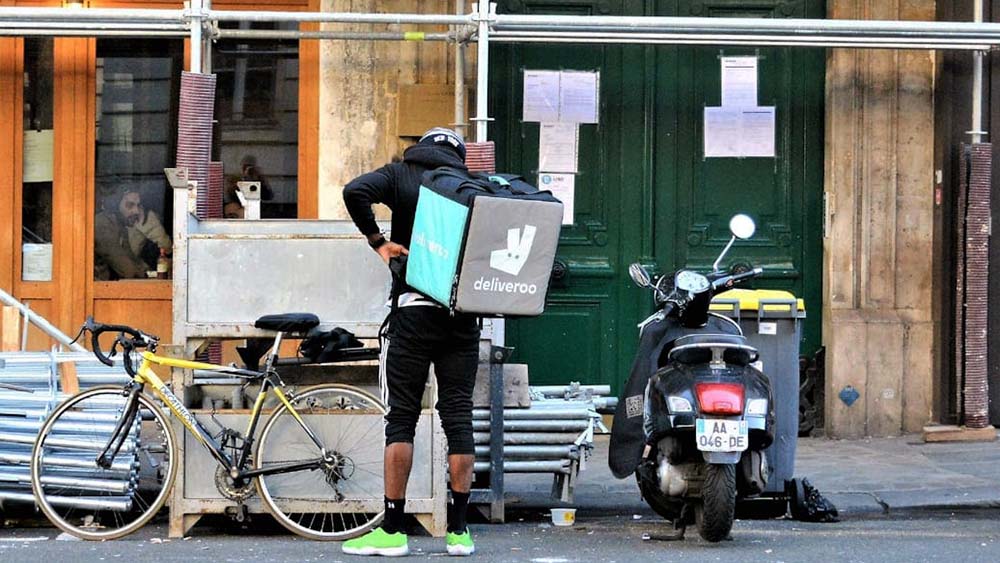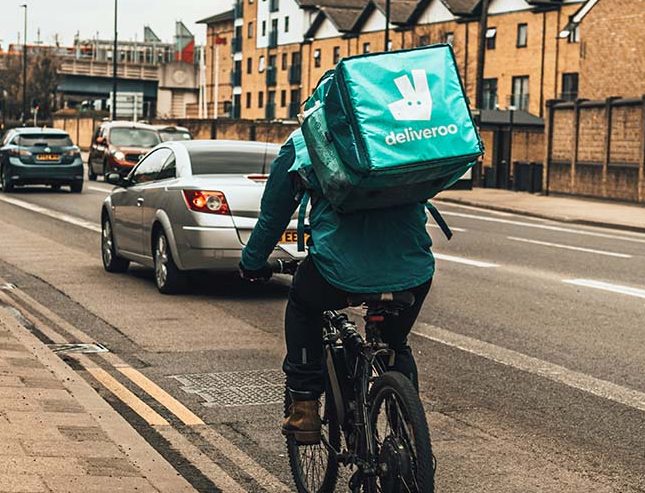Many riders work over 10 hours daily or on multiple platforms, often earning below minimum wage after deducting expenses like fuel and maintenance.

Food delivery riders in Cardiff face a decrease in income pushing them to work longer hours while they are waiting for guaranteed wages.
Many riders work over 10 hours daily or on multiple platforms, often earning below minimum wage after deducting expenses like fuel and maintenance.
“Delivery pay has decreased over the years from £4.50 per order to just £2.90. Earlier, an 8-hour shift could earn you £100, but now working all day barely gets you £60,” said Charles George (name changed) who has been working for Deliveroo for 7 years.
Drivers claim the delivery app company has consistently ignored their concerns about low pay and job insecurity, leaving them struggling with increasing financial challenges.

In May 2024, Deliveroo riders protested outside the headquarters demanding employee benefits. “We did one day of protest here in Cardiff, but nothing really happened,” said George. “Riders do not get any benefits from the company and they have stopped providing riders with bikes,” Decrease and uncertainty of income have led George to work a second job as a security worker.
The company compensates drivers per delivery, with fees varying based on distance. In 2019, Deliveroo stopped publishing its wages altogether, though the company claims its riders will earn over £10 an hour on average. Today, an algorithm handles payment and assignment of deliveries but its model remains undisclosed.
“I think it needs to be recognized that gig economy workers all have workers’ status and have the employment rights that come with it.” said Paul McGuire, Regional Organizer at the GMB Union in Cardiff. He said that it is an economy where it’s very easy to get rid of somebody for whatever reason.
George said that although this job gives flexibility in terms of timings and hours, there needs to be some changes, “I think there needs to be some proper office or something where we can go, but if you complain, they just make your account inactive. I feel that because we are self-employed, we don’t have protection.”
According to a Labour Force Survey, 30% of the delivery riders depend on this job as their primary source of income leading them to longer working hours amid rising cost of living. Without proper regulation and oversight, gig economy platforms can inadvertently or deliberately create conditions where workers are unfairly treated or exploited, said McGuire. “One of my fears is modern-day slavery where several people could be working under one profile.”
A report by Independent Workers’ Union of Great Britain shows that many riders work between 10 and 12 hours (with no tips) per day and yet end up with less than £100 a day. Last year, a landmark study by the University of Bristol helped provide clarity. Its findings revealed that gig economy workers, including Deliveroo couriers, received an average pay of £8.97 an hour – 15% below the current minimum wage.
An expert on regional economics, Calvin Jones said that this is a nation-wide problem and one of the possible solutions would be prohibition of such platforms in Wales. “Drivers being paid less results in less money circulating in the economy, which means less money is in Wales”, said Jones.

